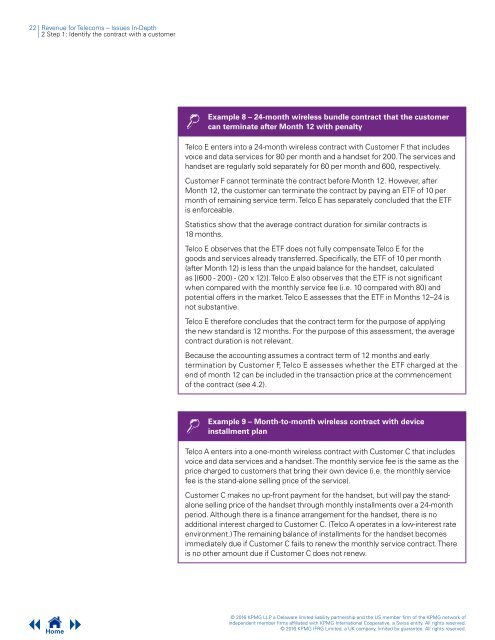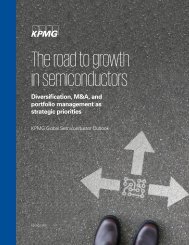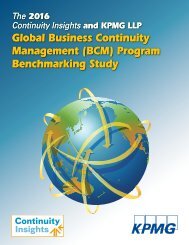Revenue for Telecoms
2cdncba
2cdncba
You also want an ePaper? Increase the reach of your titles
YUMPU automatically turns print PDFs into web optimized ePapers that Google loves.
22 | <strong>Revenue</strong> <strong>for</strong> <strong>Telecoms</strong> – Issues In-Depth<br />
| 2 Step 1: Identify the contract with a customer<br />
Example 8 – 24-month wireless bundle contract that the customer<br />
can terminate after Month 12 with penalty<br />
Telco E enters into a 24-month wireless contract with Customer F that includes<br />
voice and data services <strong>for</strong> 80 per month and a handset <strong>for</strong> 200. The services and<br />
handset are regularly sold separately <strong>for</strong> 60 per month and 600, respectively.<br />
Customer F cannot terminate the contract be<strong>for</strong>e Month 12. However, after<br />
Month 12, the customer can terminate the contract by paying an ETF of 10 per<br />
month of remaining service term. Telco E has separately concluded that the ETF<br />
is en<strong>for</strong>ceable.<br />
Statistics show that the average contract duration <strong>for</strong> similar contracts is<br />
18 months.<br />
Telco E observes that the ETF does not fully compensate Telco E <strong>for</strong> the<br />
goods and services already transferred. Specifically, the ETF of 10 per month<br />
(after Month 12) is less than the unpaid balance <strong>for</strong> the handset, calculated<br />
as [(600 - 200) - (20 x 12)]. Telco E also observes that the ETF is not significant<br />
when compared with the monthly service fee (i.e. 10 compared with 80) and<br />
potential offers in the market. Telco E assesses that the ETF in Months 12–24 is<br />
not substantive.<br />
Telco E there<strong>for</strong>e concludes that the contract term <strong>for</strong> the purpose of applying<br />
the new standard is 12 months. For the purpose of this assessment, the average<br />
contract duration is not relevant.<br />
Because the accounting assumes a contract term of 12 months and early<br />
termination by Customer F, Telco E assesses whether the ETF charged at the<br />
end of month 12 can be included in the transaction price at the commencement<br />
of the contract (see 4.2).<br />
Example 9 – Month-to-month wireless contract with device<br />
installment plan<br />
Telco A enters into a one-month wireless contract with Customer C that includes<br />
voice and data services and a handset. The monthly service fee is the same as the<br />
price charged to customers that bring their own device (i.e. the monthly service<br />
fee is the stand-alone selling price of the service).<br />
Customer C makes no up-front payment <strong>for</strong> the handset, but will pay the standalone<br />
selling price of the handset through monthly installments over a 24-month<br />
period. Although there is a finance arrangement <strong>for</strong> the handset, there is no<br />
additional interest charged to Customer C. (Telco A operates in a low-interest rate<br />
environment.) The remaining balance of installments <strong>for</strong> the handset becomes<br />
immediately due if Customer C fails to renew the monthly service contract. There<br />
is no other amount due if Customer C does not renew.<br />
Home<br />
© 2016 KPMG LLP, a Delaware limited liability partnership and the US member firm of the KPMG network of<br />
independent member firms affiliated with KPMG International Cooperative, a Swiss entity. All rights reserved.<br />
© 2016 KPMG IFRG Limited, a UK company, limited by guarantee. All rights reserved.







